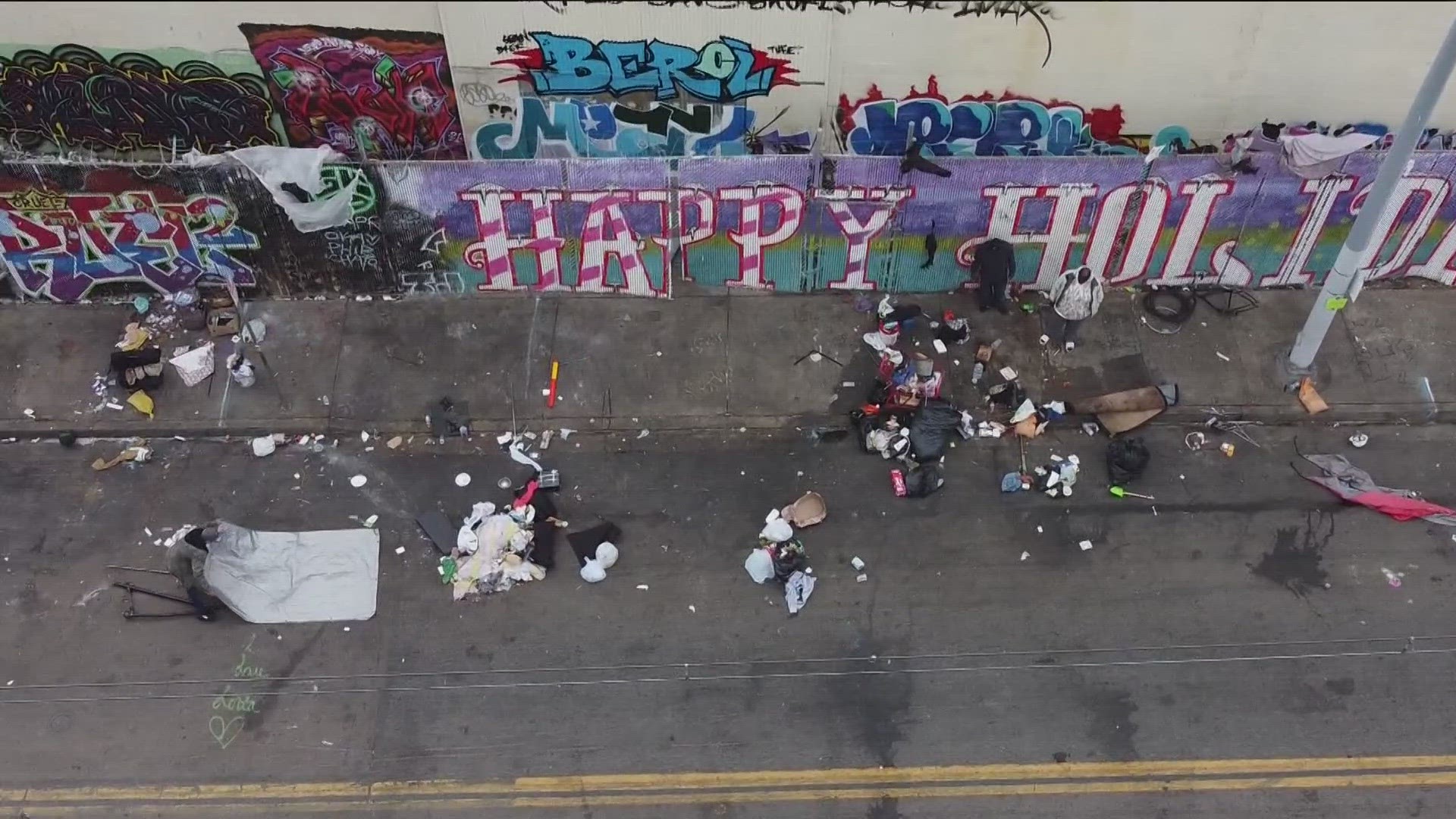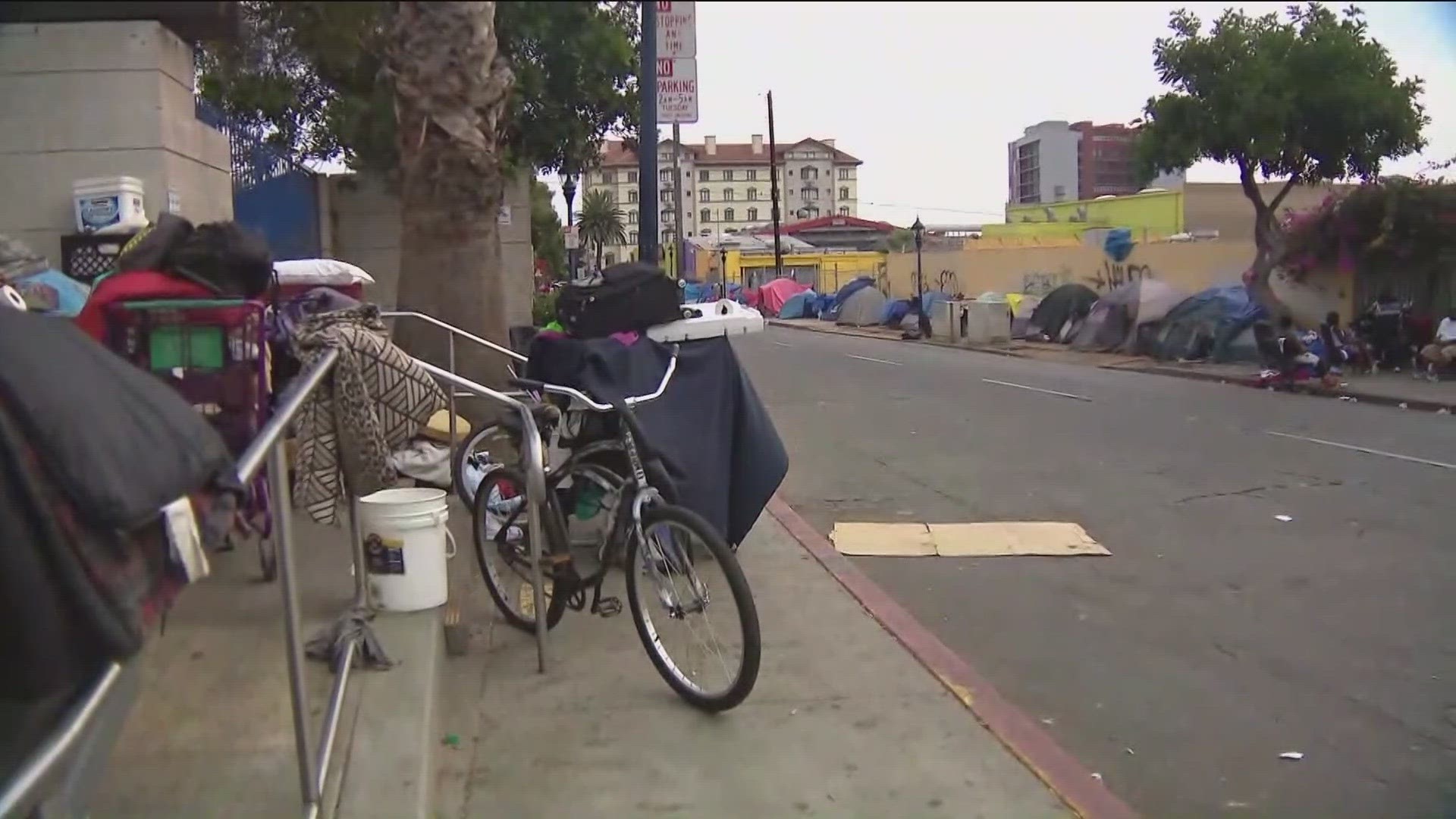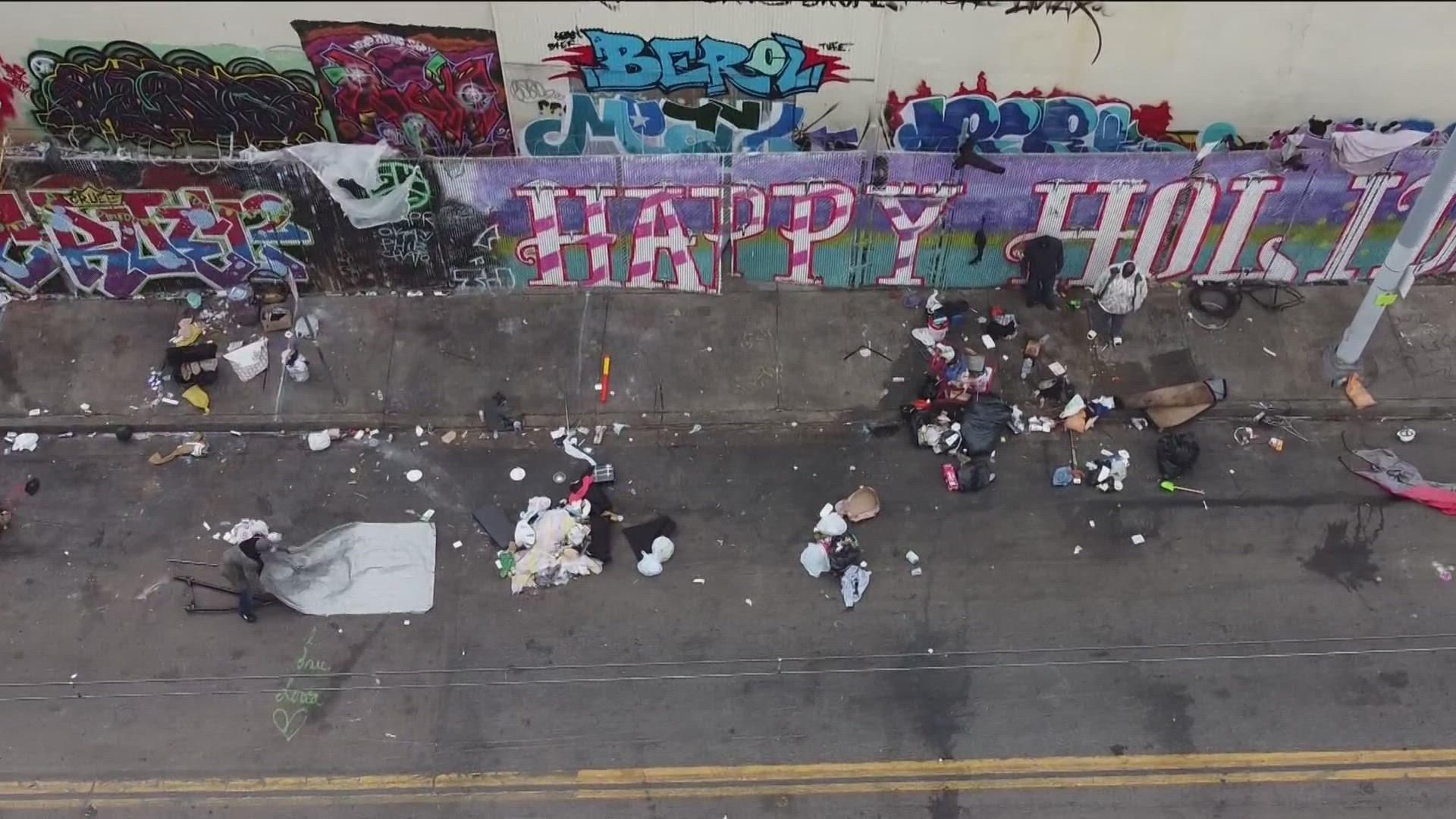SAN DIEGO — The Supreme Court will hear a case on the homelessness crisis and whether cities can punish people for living on the streets. Grants Pass v. Johnson could change what policies are used to prevent encampments.
Some people in San Diego rallied to show support for the rights of people experiencing homelessness. The San Diego Housing Emergency Alliance illuminated a sign with the words "Housing = Life" over Interstate 5 Sunday evening.
"Tomorrow the Supreme Court will be hearing the most significant case on homelessness in several decades," said Martha Sullivan, with the San Diego Housing Emergency Alliance.
The Supreme Court will be debating how far cities can go to prevent encampments. Grants Pass v. Johnson was first filed in 2018 after a city in Oregon started ticketing people for sleeping in public.
In 2020, a district court in Oregon ruled that the city of Grant Pass's actions were unconstitutional. The Ninth U.S. Circuit Court of Appeals upheld that ruling, saying giving fines or jail time to people on the streets when there isn't shelter available was cruel and unusual punishment. Now opponents are appealing to the Supreme Court.
"If the court overturns this and says encampment bans can be legal what you're going to see is very aggressive enforcement by cities in terms of criminalizing folks on the street who have no option," said Paul Downey, the CEO of Serving Seniors.
He says San Diego has about 10,000 unsheltered people while there are around 23 shelter beds open each night. Last summer San Diego's unsafe camping ban went into effect. It primarily looks to prevent camping near schools or parks.
"In San Diego there's been a lot of controversy about how can this ordinance be enforced," said Laura Halgren, a retired San Diego Superior Court Judge. "What is the city allowed to do?"
Halgren says this case's outcome could change how cities across the country enforce encampment bans.
"It's a public policy issue. What's the best way to address homelessness? Is it to arrest people and put them in jail or try to meet their needs? That's something the city and its leaders would have to decide," she said.
The Supreme Court will hear oral arguments Monday. A decision on this case is expected by the end of June.
WATCH RELATED: National City leaders vote against proposed encampment ban



